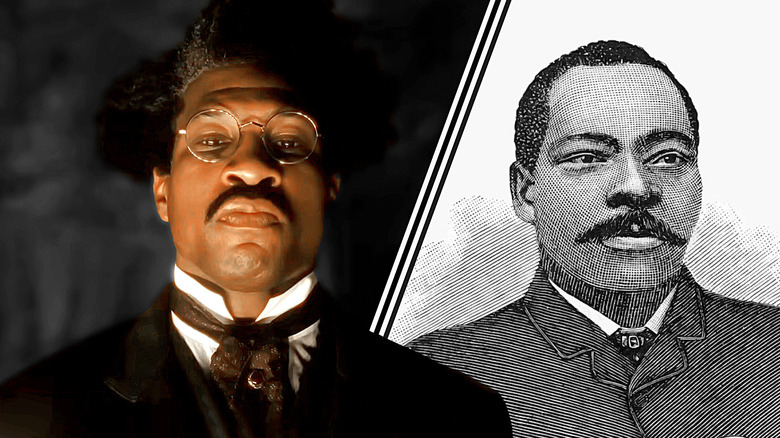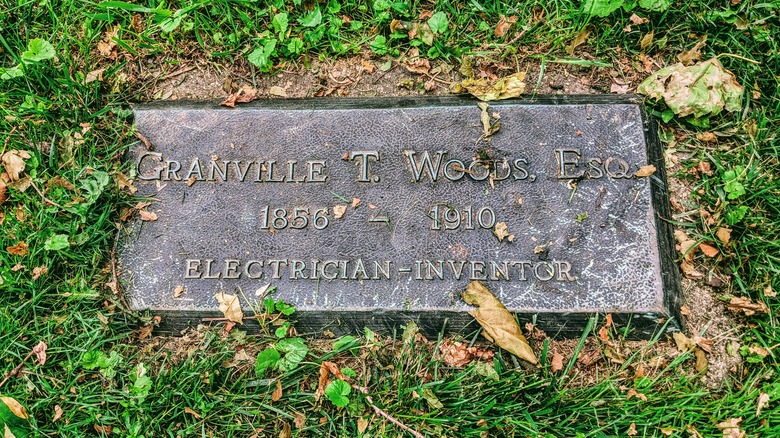Loki Season 2: Marvel's Victor Timely Was Inspired By A Real Person
Kang the Conqueror (Jonathan Majors) has taken many forms since arriving in the Marvel Cinematic Universe. The first multiversal variant fans meet is He Who Remains, who oversees the Sacred Timeline in his Citadel at the End of Time before being killed by Sylvie (Sophia Di Martino). "Ant-Man and the Wasp: Quantumania" introduces several other takes on Kang from across the Multiverse, from Immortus to Rama-Tut. Finally, the film's post-credits scene brings in Victor Timely, a brilliant inventor and con artist who's plucked from the 19th century during "Loki" Season 2 to help fix the Temporal Loom.
While Timely is based on the character of the same name from Marvel Comics, the influences on the MCU rendition don't end there. According to one of the directors behind "Loki" Season 2, Kasra Farahani, Timely is also based on the real historical figure Granville Woods. "He was a Black inventor from the [sic] exactly the era Timely would have lived, who invented so many amazing things. He was constantly having his patents challenged by other prominent inventors," he told Variety, mentioning that Woods even crossed paths with Thomas Edison, whom he beat in multiple courtroom battles over patents the latter tried to claim. To say that Woods left his mark on history long before "Loki" came to be would be a massive understatement.
Who was Granville Woods?
Granville Woods was born on April 23, 1856, in Columbus, Ohio. Unfortunately, he didn't get to have much of a childhood — at a young age, he had no choice but to enter the workforce to help support his family. His first job, at age 10, was as an apprentice at a machine shop. He developed an interest in how machines operate, pursued engineering, and eventually founded his own company, the Woods Electric Co., becoming a recognized businessman and inventor.
Throughout his life, Woods invented and patented numerous technologies that are still used today, with his first patent coming in 1884 for a steam boiler furnace. Of the many creations he patented in subsequent years, a good portion of them were related to railway travel and communication: His railway telegraph improved communication between conductors, his electric railway conduit ensured third rail systems could be used underground, and his brother, Lyates, and his improvements to George Westinghouse's railway brake apparatus made locomotive travel safer.
At the age of 53, Woods died on January 30, 1910, in New York City due to a brain hemorrhage, leaving behind a remarkable legacy. Much like the MCU's Victor Timely, he was ahead of his time, and his work changed history forever.
[Image by CaptJayRuffins via Wikimedia Commons | Cropped and scaled | CC BY-SA 4.0]

